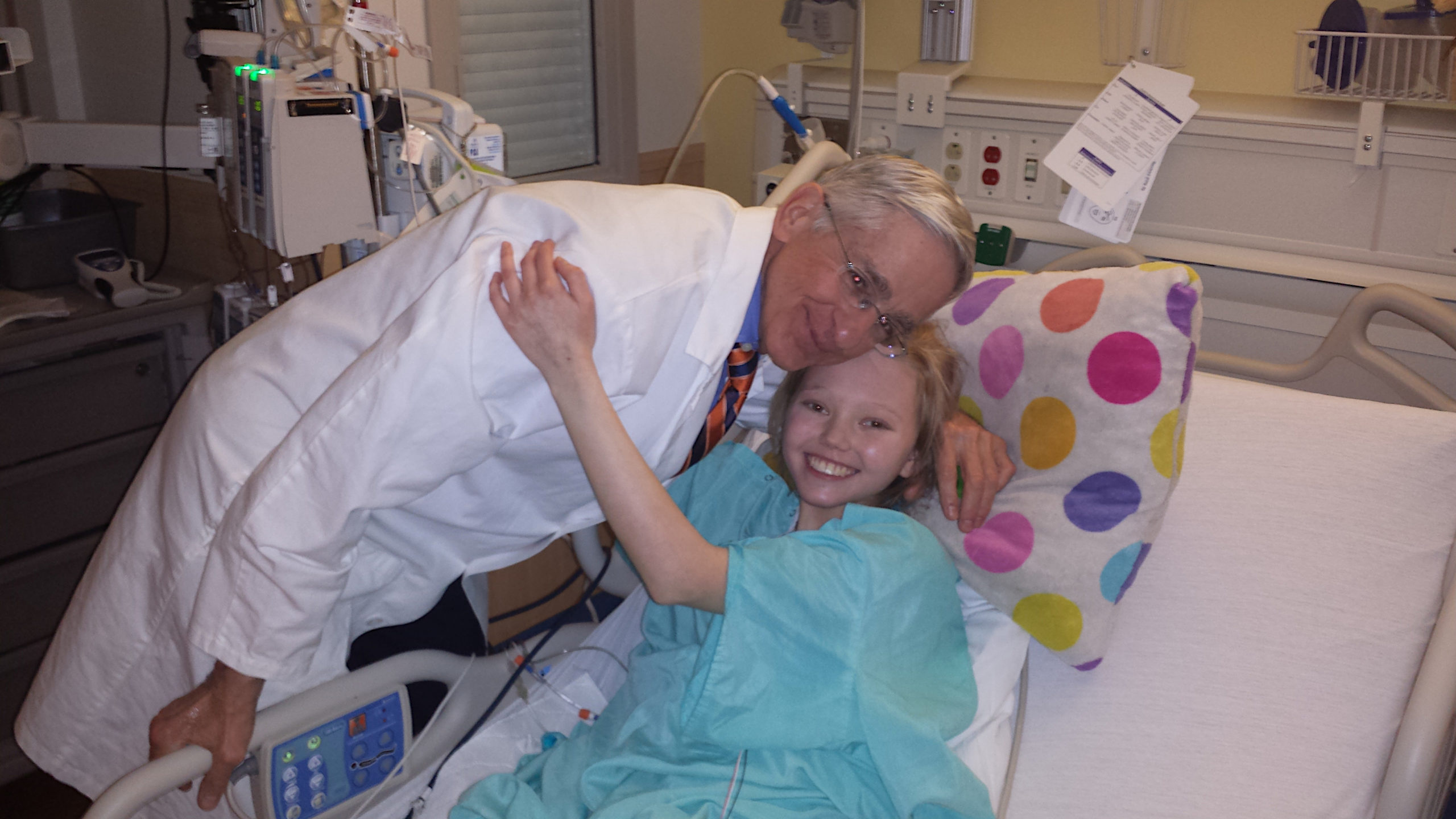What do all three of these people have in common?
- Former U.S. President Dwight D. Eisenhower
- American pop singer Anastacia
- Los Angeles Lakers forward Larry Nance, Jr.
The surprising link between the three people listed above is that they all have Crohn’s disease. But there’s one more name I want to add to the list: Me.
While I may not be the most famous name on the list, I’m one of the roughly 1.6 million Americans who have Crohn’s disease or ulcerative colitis. And unlike the others listed above, I received treatment for Crohn’s at Cincinnati Children’s, so I know a little bit of what you might be going through.
It’s hard to believe, but this summer will mark 20 years since I had bowel resection surgery. At the time, I was 15 years old, stood only about 4 feet 10 inches tall, and weighed just below 70 pounds. Obviously, Crohn’s had done a number on me physically, delaying my growth and making weight (and muscle) gain a nearly impossible task.
But more than the physical issues, what I remember most about battling Crohn’s disease as a teenager was the mental struggles. How many of you have ever had these thoughts:
- I’m the only one I know who has this disease.
- It’s embarrassing to have to go to the bathroom all the time.
- I’m afraid to eat that because it might upset my stomach.
- No one knows how I really feel.
Sound familiar? If you’re nodding your head yes, then here’s some advice I’ve picked up over the last two decades on how to deal with each one.
4 Tips for Kids and Teens with IBD
1. I’m the only one I know who has this disease.
Crohn’s and colitis seem to be silent diseases. Unlike a broken leg, you can’t see if someone has a stomach ache. Unlike cancer, people aren’t on TV raising money for those who go to the bathroom frequently.
Crohn’s and colitis often leave us feeling like we’re all alone. Whether you know it or not, there have been many famous people diagnosed with Crohn’s and ulcerative colitis. There are a million more people with the diseases who aren’t famous, like me.
So while you may feel like the only person in the world battling IBD, know that you aren’t alone. Ask your doctor to connect you with another patient battling the same symptoms or research your local Crohn’s and Colitis Foundation chapter.
2. It’s embarrassing to have to go to the bathroom all of the time.
There’s a potty training book for kids called “Everyone Poops.” I’ve long held the belief that someone should write a sequel to this called “Some People Poop More Than Others.” I’m sure it would be a best seller among Crohn’s and colitis patients, at the very least.
As a culture, we don’t talk about going to the bathroom. It’s embarrassing, right? Well guess what, everyone does it. Your parents poop. Your siblings poop. Your friends poop. Even your GI doctor poops.
And as an IBD patient, it’s important for your doctor to know about your bathroom habits. So the next time you’re asked how frequently you go or how often you have diarrhea, put away the embarrassment and answer honestly. Remember, everyone poops, some more than others.
3. I’m afraid to eat that because it might upset my stomach.
This is what I like to call the “what if” factor. What if I eat something and it upsets my stomach? What if I have to go to the bathroom in the middle of a long car ride? What if my IBD flares up in the middle of class?
Life is full of what ifs, and no one knows that more than Crohn’s and colitis patients. To be completely honest with you, I still struggle with answering the “what if” question when I’m scheduled for a lunch meeting or about to embark on a long trip. But I’ve also found the fear of “what if” is usually worse than the event itself.
Stress increases IBD symptoms, so fearing something that hasn’t happened can be crippling for us. No one can predict the future, so eliminate the fear of what might happen, and just enjoy life as it comes to you. Follow any diet regulations your doctor gives you, but don’t miss out on new experiences because of “what if.”
4. No one knows how I really feel.
Because every case of Crohn’s and colitis is different, no one truly knows how you are feeling at any given moment. That is unique to you, and you alone.
But there are a lot of people who have dealt with similar symptoms. And there are even more people—like your doctors, nurses, parents, and friends—who are willing to listen if you give them the chance.
Letting people into your journey with Crohn’s and colitis can help ease some of the stress and fear that accompany these diseases.
So even with Crohn’s disease or ulcerative colitis, others have proven that you can still be a U.S. President, a pop star or even a professional athlete. Or maybe you can be like me—happily married, father to a beautiful daughter, and willing to help others with their IBD battles. Regardless of which path you choose, know that you are not alone on your journey.
To learn more about our Schubert-Martin IBD Center, please email ibd@cchmc.org or call 513-636-4415.





